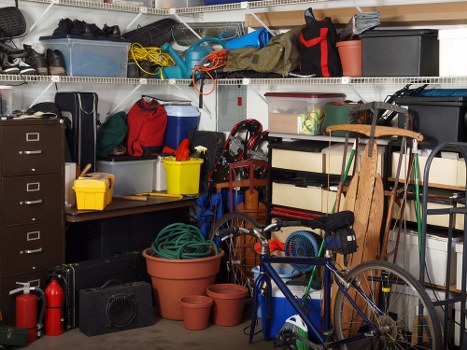Effective Waste Disposal Strategies in East London

Managing waste efficiently is crucial for maintaining the cleanliness and sustainability of East London. With its growing population and increasing commercial activities, the region faces significant challenges in waste disposal. Implementing effective waste management strategies not only helps in reducing environmental impact but also promotes public health and community well-being.
East London's waste disposal system encompasses various methods, including recycling, composting, and landfill disposal. Each method has its advantages and drawbacks, making it essential to adopt a comprehensive approach that addresses the diverse needs of the community.
One of the primary goals in waste management is to minimize the amount of waste that ends up in landfills. By promoting recycling and composting, East London can divert a substantial portion of its waste stream, leading to reduced landfill use and lower greenhouse gas emissions.

Recycling Initiatives
Recycling is a cornerstone of effective waste disposal in East London. The city has implemented several initiatives to encourage residents and businesses to recycle more efficiently. These include providing accessible recycling bins, offering incentives for recycling, and conducting awareness campaigns.
Recycling centers in the area are equipped to handle various materials, such as paper, glass, plastic, and metals. By ensuring that these materials are properly sorted and processed, East London can significantly reduce the volume of waste sent to landfills.
Moreover, education plays a vital role in the success of recycling programs. Community workshops and school programs help inform the public about the importance of recycling and how to do it correctly. This fosters a culture of sustainability and responsibility among residents.

Composting Practices
Composting is another essential component of East London's waste disposal strategy. By converting organic waste into compost, the city can reduce the amount of biodegradable material in landfills and produce valuable fertilizer for local agriculture.
Residents are encouraged to separate kitchen scraps and garden waste from their regular trash. Composting bins are provided to households, and community composting sites are available for those who prefer not to compost at home.
The benefits of composting extend beyond waste reduction. Compost enriches soil, enhances plant growth, and helps retain moisture, which is particularly beneficial for urban gardening and green spaces in East London.

Landfill Management
Despite efforts to reduce landfill usage, some waste inevitably ends up in landfills. Effective landfill management is crucial to mitigate environmental impacts such as leachate contamination and methane emissions.
- Advanced landfill liners prevent soil and groundwater contamination.
- Methane capture systems reduce greenhouse gas emissions.
- Regular monitoring ensures compliance with environmental standards.
East London's landfills are designed with these features to ensure that waste disposal does not compromise the environment or public health.
Additionally, the city is exploring waste-to-energy technologies as an alternative to traditional landfill disposal. These technologies can convert non-recyclable waste into renewable energy, further reducing the environmental footprint of waste disposal.

Community Engagement and Education
Engaging the community is vital for the success of waste disposal initiatives in East London. Active participation from residents, businesses, and local organizations ensures that waste management programs are effective and sustainable.
Public seminars, informational brochures, and online resources provide valuable information on proper waste disposal practices. Collaboration with schools and community centers also helps spread awareness and encourage responsible waste management.
Contact us today to learn more about how you can contribute to a cleaner and greener East London!
